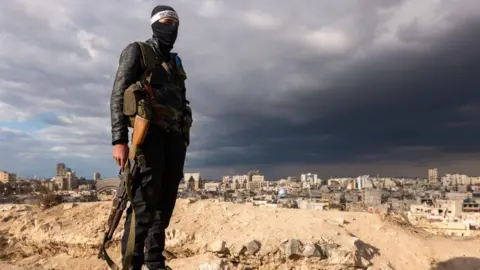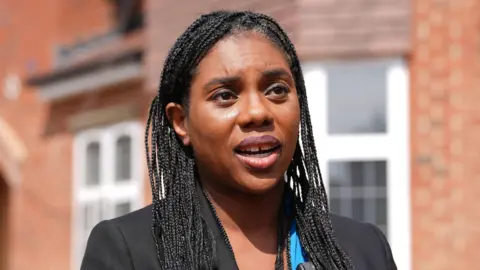US Reassesses Syria Policy: HTS Removal from Terror List Signals New Diplomatic Era
The United States is poised to remove the Syrian Islamist group Hayat Tahrir al-Sham (HTS) from its list of foreign terrorist organizations. This significant policy shift, detailed in a State Department memo, comes as the US seeks to recalibrate its engagement with Syria following the recent toppling of the Assad regime. HTS, which led the offensive that ended Bashar al-Assad’s 54-year rule, has installed its leader, Ahmed al-Sharaa, as the country’s interim president.

Historically known as the al-Nusra Front, HTS was once an affiliate of al-Qaeda. However, al-Sharaa publicly severed ties with the terrorist network in 2016, a move seen as a strategic pivot for the group. This re-evaluation by the US comes amid broader efforts by Western nations to reset relations with Syria, a country heavily impacted by international sanctions aimed at the former regime. The lifting of these sanctions, including an executive order signed by President Trump in late June, is intended to foster stability and peace within Syria. The White House has stated that its support is contingent on the new Syrian government taking concrete steps towards normalizing relations with Israel, addressing foreign terrorist elements, and banning Palestinian terrorist groups.
Syrian Foreign Minister Asaad al-Shibani has welcomed the US decision, asserting that it will remove obstacles to economic recovery and facilitate the country’s reintegration into the international community. This sentiment was echoed on Friday when Syria expressed its willingness to cooperate with the US on the re-implementation of a 1974 disengagement agreement with Israel.
The UK has also signaled a shift in its approach, with Foreign Secretary David Lammy making the first visit by a British government minister to Syria in 14 years over the weekend. During his visit, Lammy met with al-Sharaa and announced an additional £94.5 million aid package to support Syria’s long-term recovery and assist countries hosting Syrian refugees. This follows the UK’s earlier decision to lift sanctions on Syria’s defense and interior ministries.
The recent political and diplomatic shifts occur against a backdrop of immense humanitarian challenges in Syria. Following the ousting of the Assad regime after 13 years of devastating civil war, an estimated 90% of the Syrian population now lives below the poverty line. While al-Sharaa has pledged a new era for Syria, concerns remain regarding the governance of the new administration. Critiques include the limited representation of women in the government, with only one female minister appointed to date, and al-Sharaa’s direct appointment of most other officials. Furthermore, Syria has experienced a concerning rise in violent attacks targeting minority groups. Notable incidents include clashes between new security forces and Assad loyalists in March that resulted in numerous civilian deaths from the minority Alawite sect, deadly confrontations between Islamist factions and minority Druze fighters in April, and a suicide attack on a Damascus church in June that claimed at least 25 lives.



Post Comment